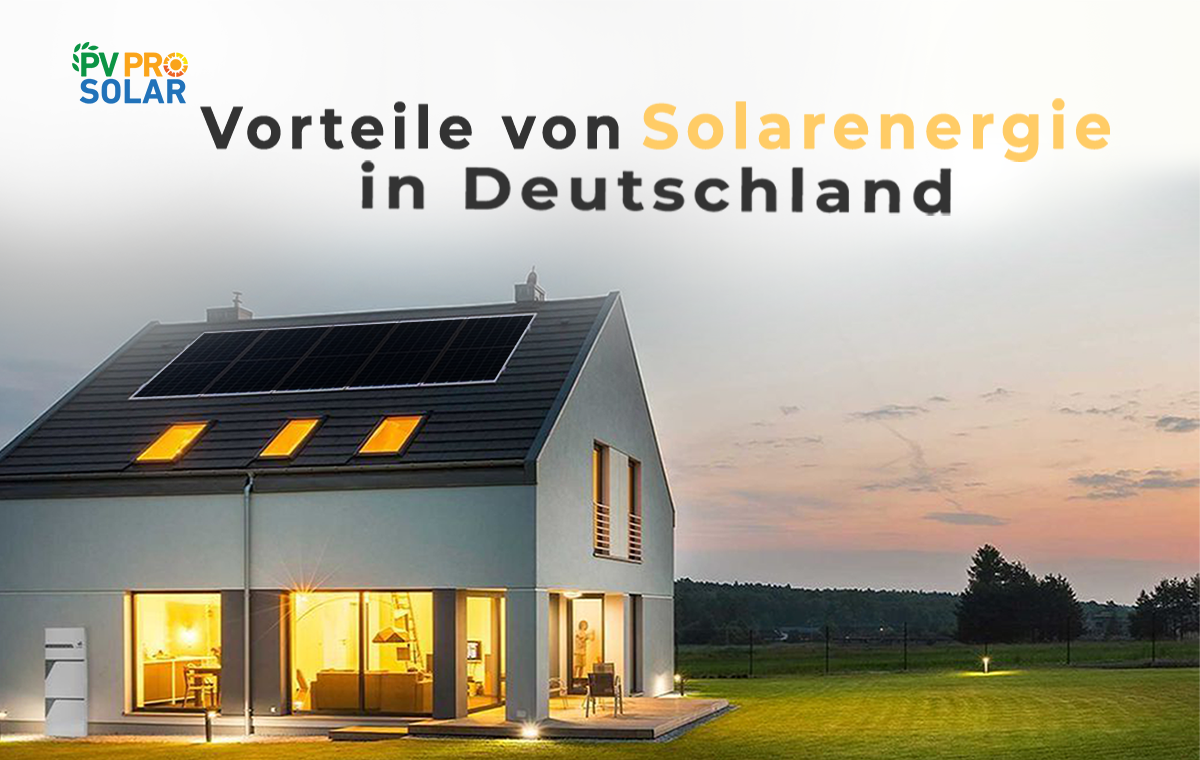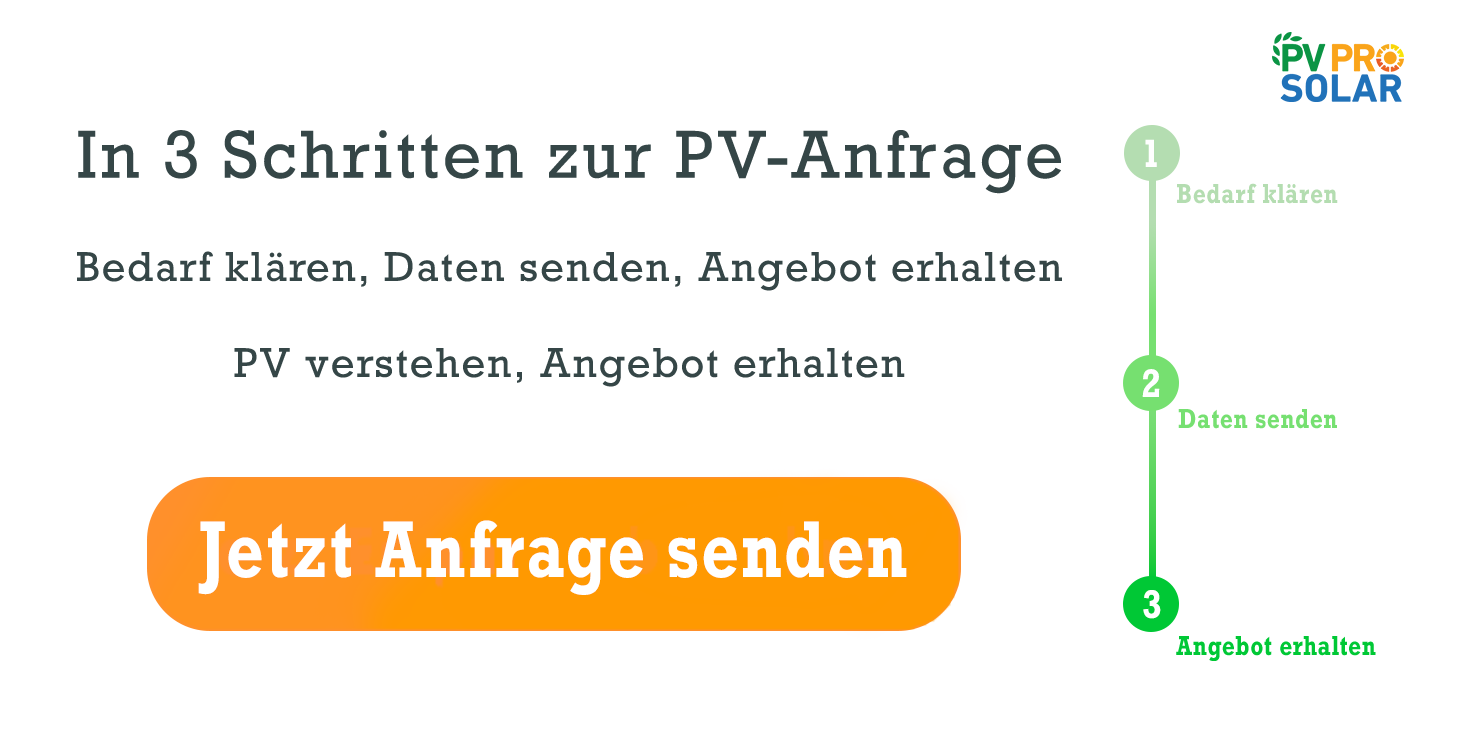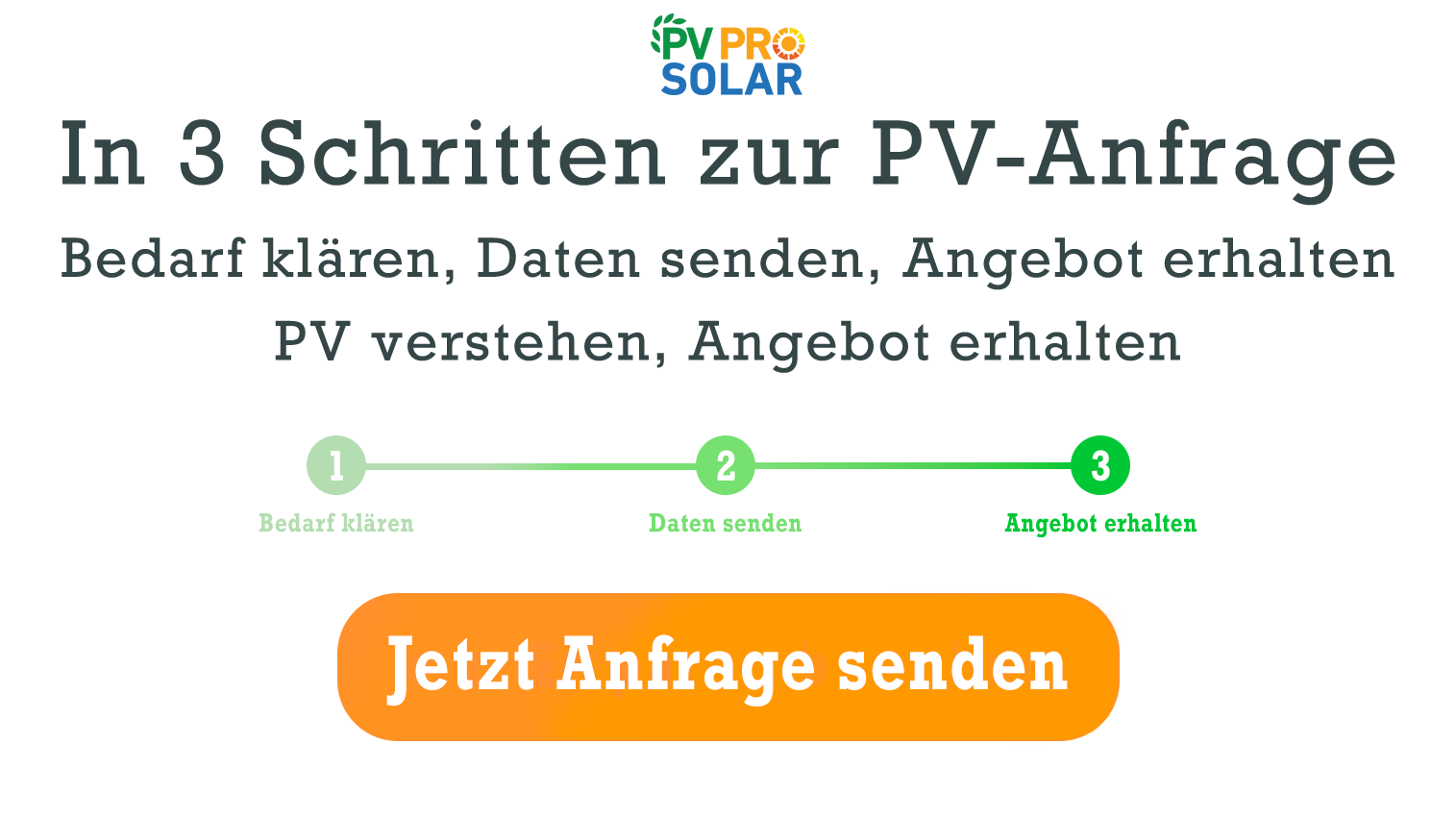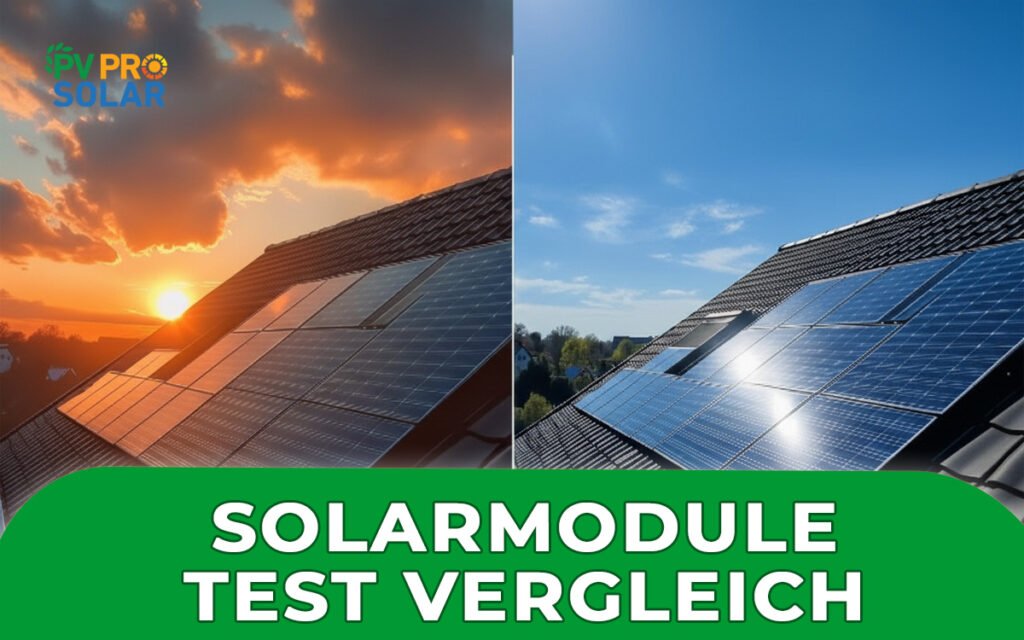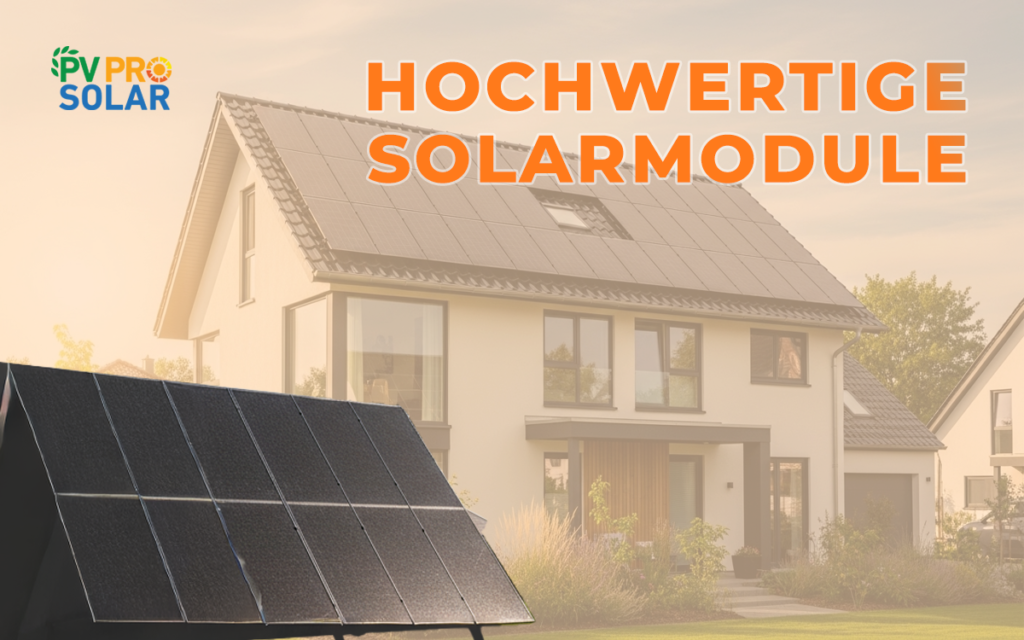What Are the Real Benefits of Solar Energy in Germany?
Investing in solar energy in Germany offers a powerful combination of environmental responsibility and financial return. Modern photovoltaic (PV) systems are more cost-effective than ever before, thanks to falling module prices, increased efficiency, and generous government incentives.
Cost Breakdown
Installation Costs for 5–10 kWp Systems: €8,000–€18,000
Solar Module Types:
- Monocrystalline: 20–25% efficiency, long lifespan, ideal for low sunlight conditions
- Polycrystalline: 15–20% efficiency, more affordable
- Thin-Film Modules: 10–12% efficiency, flexible installation, ideal for limited roof space
Additional Components:
- Inverter: €1,000–€2,500
- Battery Storage: €4,000–€10,000 (8–15 kWh capacity)
Incentives & Financing
Government Support:
- KfW Programs 270/271: Low-interest loans, repayment grants, financing for PV + storage
- EEG Feed-in Tariff: Guaranteed rate of €0.07–€0.09 per kWh for surplus electricity fed into the grid, fixed for 20 years
- Tax Benefits: Depreciation on the system, reduced VAT for self-consumed electricity
Payback & Return on Investment
- Residential Rooftop Systems: Payback in 8–12 years
- Commercial Installations: Payback in 6–9 years
- Electricity price increase: +3–5% per year → Solar protects against rising energy costs
Real-World Examples
- Hannover (6 kWp): €12,000 investment → €1,140 annual savings → Payback in 10.5 years
- Bremen (50 kWp for industrial use): €75,000 investment → €6,500/year feed-in income, 70% self-consumption → Payback in 9 years
- Wolfsburg (7 kWp + 10 kWh battery): 75% self-consumption → €1,650/year savings → Payback in 9 years
Technical Aspects
- Modules: 25-year performance warranty, annual output degradation of only 0.5–0.7%
- Battery Storage: Increases self-consumption, stabilizes energy costs, enables load shifting
- Monitoring Systems: Real-time performance analytics ensure maximum efficiency
Long-Term Perspective
- Integration with e-mobility, heat pumps, and smart-home systems boosts energy independence
- Sustainability: Reduces reliance on fossil fuels and supports Germany’s climate targets
Regional Factors
- Solar Irradiation:
- Northern Germany: 950–1,050 kWh/m²
- Southern Germany: 1,100–1,200 kWh/m²
- Optimal Roof Angle: 30–35°, with a south-facing orientation
- Avoid Shading: Trees, neighboring buildings, dormers
How Does Solar Energy Impact Household Electricity Bills?
Average Consumption:
- Single-family home: 3,500–4,500 kWh/year
- 5 kWp system: Generates around 4,500 kWh/year, nearly covering total household demand
Self-consumption rates:
- Without storage: 30–50%
- With storage: 60–80%
Cost Savings
- Electricity price (2025): €0.35/kWh
- 4,000 kWh of self-consumed electricity: ~€1,400 in annual savings
- 7 kWp + storage system: Up to €1,650/year
Practical Examples
- Wolfsburg (5 kWp, 60% self-consumption): €840/year savings → Payback in 11 years
- Hannover (7 kWp + storage, 75% self-consumption): €1,650/year → Payback in 9 years
Optimization Tips
- Smart-home integration: Run appliances like washing machines or dishwashers during the day
- Battery Storage: Boost self-consumption, reduce grid reliance
- Sell surplus energy: Earn via EEG feed-in tariff
Cost Comparison: Grid Power vs. PV Self-Consumption
- Grid electricity: €0.35/kWh
- PV self-consumption: €0.10–€0.12/kWh (including depreciation and operating costs)
- Long-term savings: €800–€1,600 per year
Regional Output Comparison
- Hannover: Optimal roof → ~4,500 kWh/year
- Bremen: ~10% less sunlight → ~4,000 kWh/year
- Wolfsburg: Some shading → ~3,800 kWh/year
Environmental Benefits of Solar Energy in Germany
CO₂ Reduction
- 1 kWp of PV capacity → 500–600 kg CO₂/year
- 5 kWp system → 2.5–3 metric tons CO₂/year
- 10,000 households with 5 kWp systems → 25,000 metric tons CO₂ saved annually
Additional Environmental Benefits
- No sulfur, nitrogen, or particulate emissions
- Silent operation
- Minimal maintenance, no chemical waste
Case Studies
- Company in Hannover (100 kWp): ~50 metric tons of CO₂ saved per year
- Municipality in Lower Saxony (500 kWp): ~250 metric tons of CO₂ saved per year
Other Advantages
- Utilizes rooftop space without impacting biodiversity
- Reduces fossil fuel dependency, stabilizes energy supply
- Improves regional air quality, supports national climate goals
Comparison to Fossil Fuels
- Coal: 1 kWh → 0.9 kg CO₂
- Gas: 1 kWh → 0.45 kg CO₂
- PV: 1 kWh → 0 kg CO₂
Future Outlook
- Massive PV expansion → Millions of tons in national CO₂ reductions
- Combined with wind power and storage → Stable, carbon-neutral energy mix
How Does the German Government Support Solar Energy?
Incentive Programs
- KfW Loans: Low-interest rates, repayment bonuses
- EEG Feed-in Tariff: Guaranteed rates for 20 years
- Tax Incentives: Depreciation, reduced VAT
Regional Support
- Niedersachsen, Bremen, Schleswig-Holstein: Extra subsidies available
- Municipal grants: Support for roof renovation + PV systems
Examples
- Hannover: KfW loan → €2,500 interest savings
- Bremen: 10% subsidy for battery + PV system
Strategic Advantages
- Increased energy independence
- Supports energy transition and climate targets
- Ensures long-term return on investment
Advanced Considerations
- Combining PV with storage reduces grid load
- Smart grid integration supports sustainable infrastructure
- Guaranteed support ensures long-term investment security
Further Expansion Available Upon Request
If desired, we can greatly expand the following sections:
- Technological Advancements (module efficiency, storage innovations, AI monitoring)
- Energy Independence for homes and businesses
- Commercial & Industrial Applications
- ROI and Payback Calculations
- Battery Storage in Detail
- Solar Energy’s Role in Germany’s Sustainable Energy Future
Solar energy offers wide-ranging benefits: cost savings, environmental sustainability, technological efficiency, and energy independence. Both households and businesses can benefit significantly through self-consumption, battery storage, and government incentives. PV systems are a key driver of Germany’s energy transition and CO₂ reduction goals. With modern panels and smart storage solutions, solar investments now promise not only long-term savings but also secure, sustainable returns. Choosing solar is a forward-looking decision that supports financial stability, environmental protection, and a cleaner energy future for Germany.
A 5 kWp residential system typically produces around 4,500 kWh per year, depending on location, roof angle, and shading.
Yes. Modern modules are efficient even in diffuse light. Reliable energy yields are possible even in winter. How much electricity can a typical solar system generate in Germany?
Is solar energy effective in cloudy German weather?

